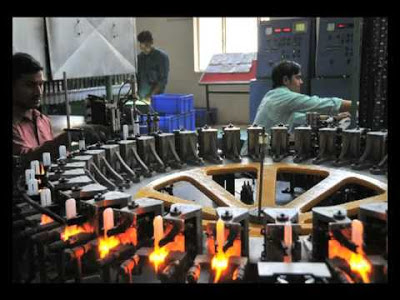Last May, the Village Elliot made a rather brash and slightly heretical prediction that future
refereed scientific studies might revisit the historical periods known
as the Medieval Warming Period and the Little Ice Age ( http://elliotkennel.blogspot.com/2012/05/medieval-warming-period-and-climate.html ). This poses a mild challenge to conventional wisdom, which claims that global average temperature has been highly stable for thousands of years, until the 20th century, at which point carbon dioxide caused global warming to occur. The majority of climatologists believe that only carbon dioxide has made a major change in global average temperature over the past several thousand years, and non-CO2 effects can probably be neglected.
Being not terribly bright, the Village Elliot wondered whether the climate stasis hypothesis is consistent with the historical record, which describes events such as the settlement of Greenland by the Vikings as well as the Inuit during the Medieval Warming Period; with those settlements being scaled back or disappearing during the Little Ice Age which historians say followed. After all, a 1 degree Celsius temperature variation is less than the average difference in annual temperature between Cleveland and Columbus (or Boston and New York, if you prefer) which doesn't seem like the difference between an ice age and a warming period even when you factor in the fact that temperature change is higher at high lattitudes. During the warming period, people were raising crops in Greenland, and during the Little Ice Age the Baltic Sea froze solid in the wintertime.
Being not terribly bright, the Village Elliot wondered whether the climate stasis hypothesis is consistent with the historical record, which describes events such as the settlement of Greenland by the Vikings as well as the Inuit during the Medieval Warming Period; with those settlements being scaled back or disappearing during the Little Ice Age which historians say followed. After all, a 1 degree Celsius temperature variation is less than the average difference in annual temperature between Cleveland and Columbus (or Boston and New York, if you prefer) which doesn't seem like the difference between an ice age and a warming period even when you factor in the fact that temperature change is higher at high lattitudes. During the warming period, people were raising crops in Greenland, and during the Little Ice Age the Baltic Sea froze solid in the wintertime.
Hence I was
interested to read a recent article by Christiansen and Ljundqvisk,
"The extra-tropical Northern Hemisphere temperature in the last
millennia: reconstructions of low-frequency variability" (Climate of
the Past, 8, 765–786, 2012), in which the authors examine 91 proxy data
sets. To make a long story short, Christainsen and Ljundqvisk suggest among other things, that the Medieval Warming Period and Little
Ice Age may have been more significant than previous reconstructions
have thought. Like, the Medieval Warming Period may have actually been warmer, and the Little Ice Age may have actually been colder.
Now, this does not in any way disprove a role for carbon dioxide in contributing to 20th century global warming, and in fact the paper does not directly invoke carbon dioxide at all. If you have enough confidence in computer models, you might still conclude that 20th century warming was due to CO2. However, to my thinking the door is left ajar for continuing consideration of the various forces that affect our climate, both natural and human-caused. The question is how much warming is due to carbon dioxide, and how much is due to something else? Although some people are certain of that answer, I'm not there yet.
Now, this does not in any way disprove a role for carbon dioxide in contributing to 20th century global warming, and in fact the paper does not directly invoke carbon dioxide at all. If you have enough confidence in computer models, you might still conclude that 20th century warming was due to CO2. However, to my thinking the door is left ajar for continuing consideration of the various forces that affect our climate, both natural and human-caused. The question is how much warming is due to carbon dioxide, and how much is due to something else? Although some people are certain of that answer, I'm not there yet.
A single article is rarely decisive, so it will be interesting to see whether future studies tend to support or refute Christiansen and Ljundqvisk's analysis.
A recent reconstruction by Christiansen and Ljundqvisk suggests that the Medeival Warming Period might have been roughly similar to the 20th century in terms of average temperature in the Northern Hemisphere.
Previous reconstructions have suggested that the Medieval Warming Period was not particularly warm compared to the 20th Century.









